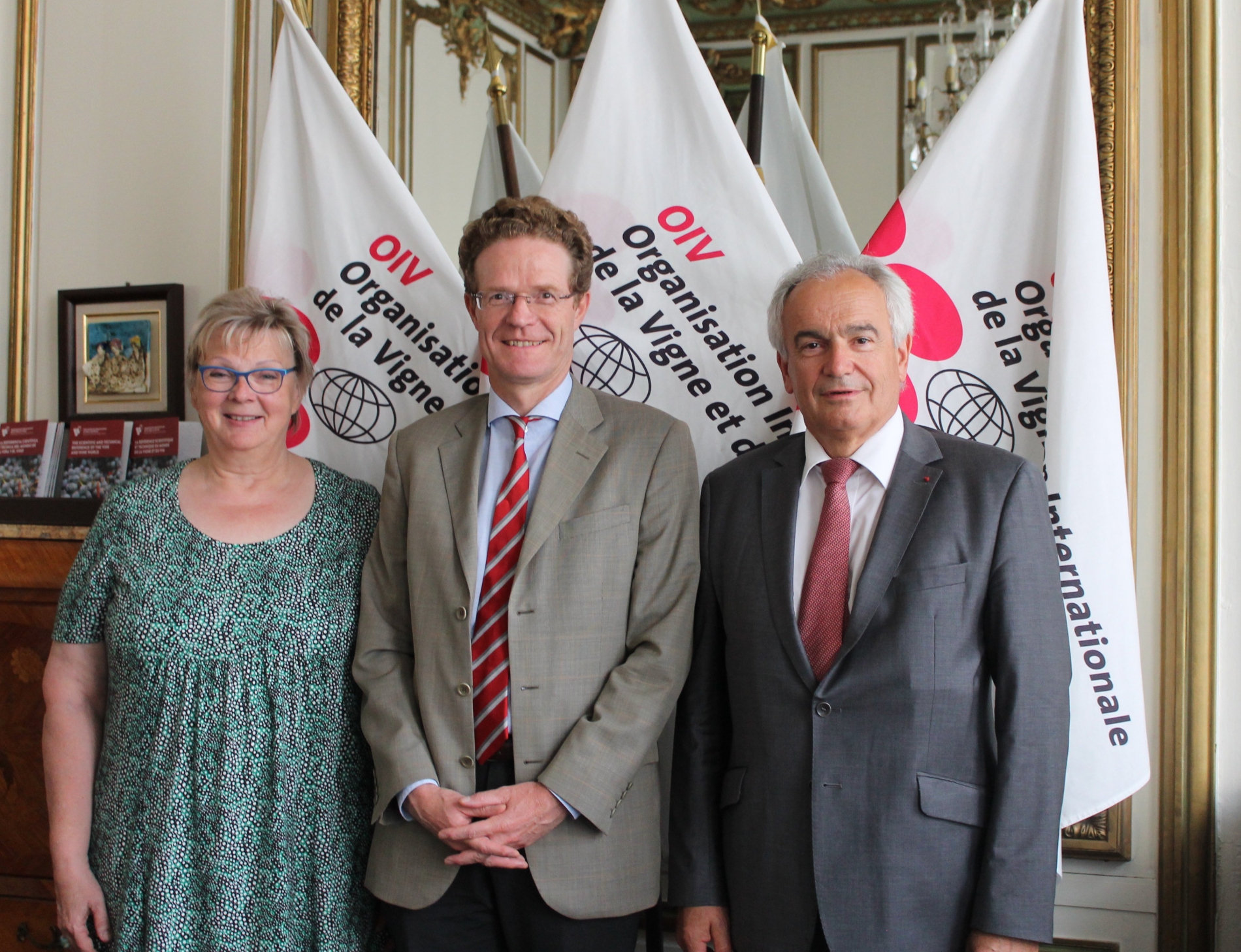
Victor Magalhães passed away on 10 June 2017 at the age of 50 following a cerebrovascular accident that occurred during the closing dinner of the 40th OIV Congress in Sofia.
It is with immense sorrow and great pain that we mourn the loss of Victor.
He dedicated his entire career to the OIV, where he worked in the Secretariat for over 23 years.
During all these years, he demonstrated a high level of professionalism and talent, having played an active role in compiling the statistical data published by the OIV every year. His experience, knowledge and expertise were recognised by all.
But aside from his professional competence, Victor had strong, wonderful human qualities appreciated by all those who had the pleasure of meeting him.
He set an example in terms of his energy and drive. It was with tremendous strength of character that several years ago he faced a serious illness and overcame the severe health problems he was affected by. Many, under these circumstances, would have thrown in the towel; Victor made the decision to resume his professional life and take on every challenge life threw at him with optimism.
Victor had an endearing and highly empathetic personality. He was profoundly human, mindful of others, warm and altruistic. His optimism was infectious, and he loved to share his passion for football with his colleagues, as he also did with his son. Victor was appreciated universally.
His passing has deeply affected his colleagues and friends at the OIV Secretariat who he mixed with on a daily basis, but also the wider OIV family.
We express our deepest sympathies to his partner Paola, his son Léandro, his parents, his sister and all those close to him.
We will not forget Victor.
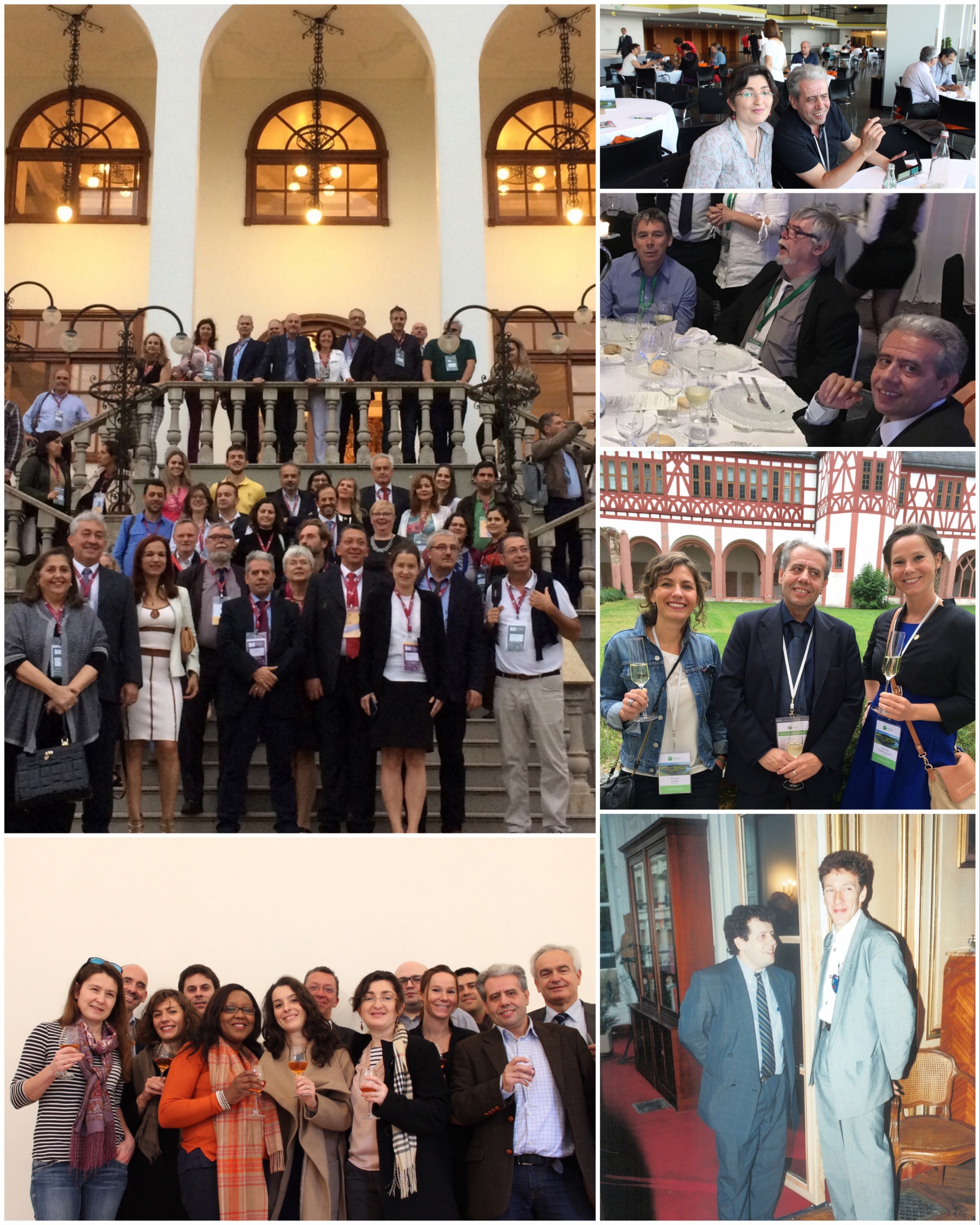
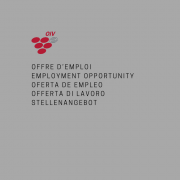
The existing databases are currently processed autonomously in Excel and Access and are partially accessible and static on the OIV website.
The objective is to have a permanent database that, in a second phase, can be used (for searches, status reports, graphs, etc.) both internally and on the OIV website through fun and configurable visual extractions.
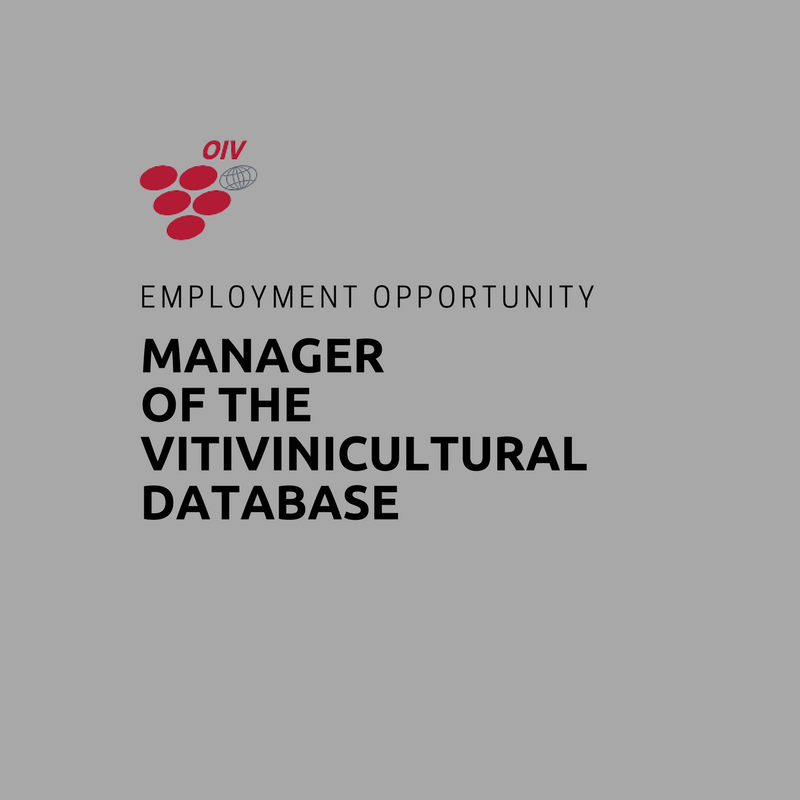
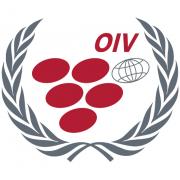
Forms and information
Form_Inscription_Livre_Book_JdP_2018.pdf
Form_Inscription_numeric_JdP_2018.pdf
Please note: journals and promotional and commercial documents are not accepted.
A work (whether it has already won the award or not) may not be presented to the Award Jury for a second time.
See details of the entries in the document " Information OIV Awards 2018".
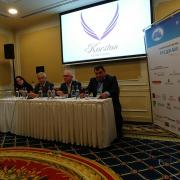
Every year this event, placed under the patronage of the OIV and presided by Vitaly Merkushev, brings together actors in the vitivinicultural field from countries in the Black Sea area.
400 participants, wine producers, oenologists, sommeliers, distributors, researchers, government representatives and journalists from 20 or so countries took part in this meeting, whose aim was to promote economic and technical cooperation by highlighting the common vitivinicultural characteristics of the region.
During a conference dedicated to the implementation of a common working framework between the different actors, OIV Director General Jean-Marie Aurand gave a presentation on the major developments in the global vitivinicultural sector. This included a focus on the “spaces of convergence” of the vitivinicultural industry around the Black Sea, and the axes and actions for cooperation likely to be put in place.
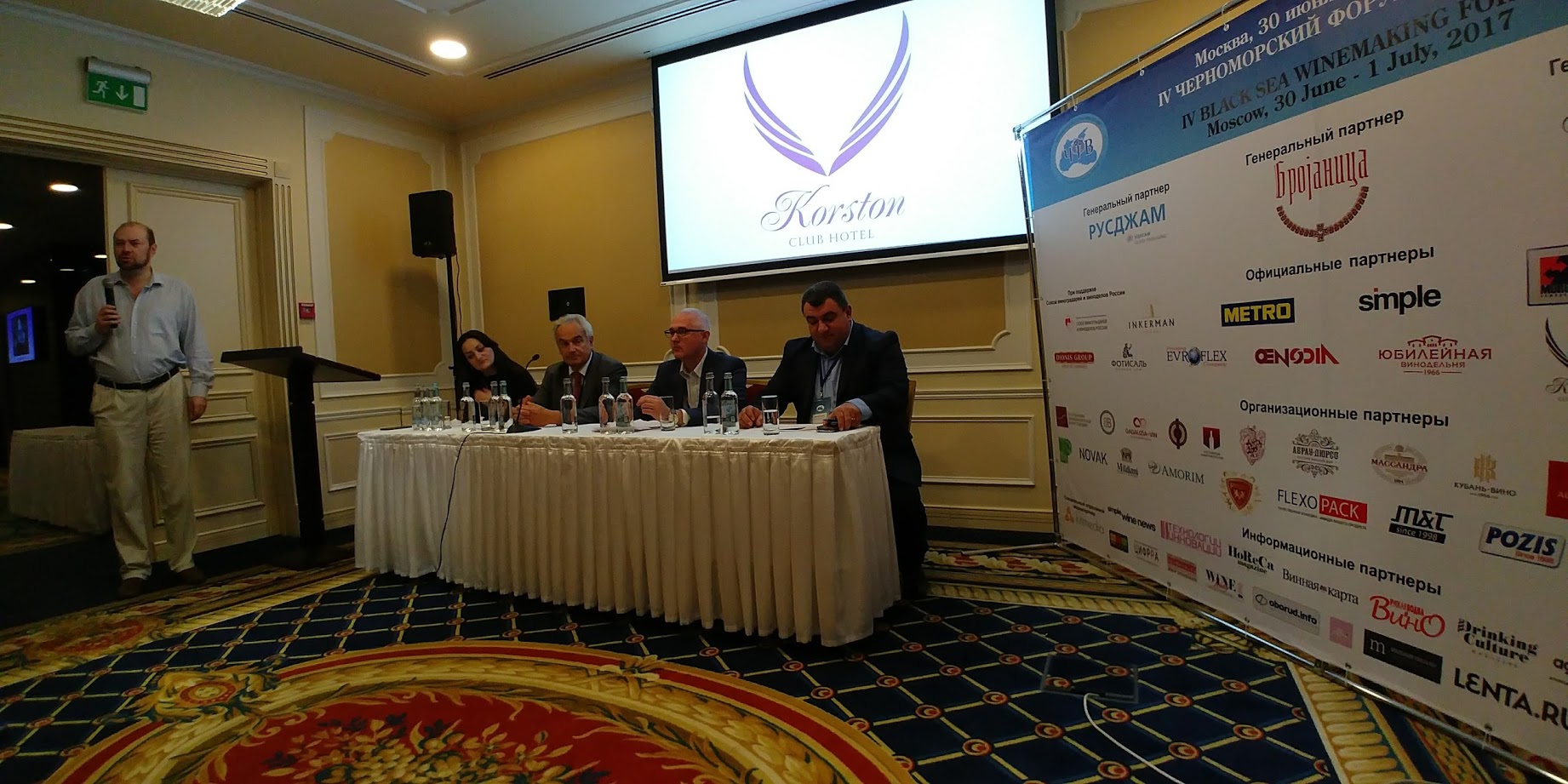
The presentation of wines organised as part of the Forum brought together over 70 companies.
During the opening ceremony, Jean-Marie Aurand officially presented an OIV Merit Award to Lev Oganesyants, Director of the Russian Research Institute for Wine, Beer and Soft Drink Industries.
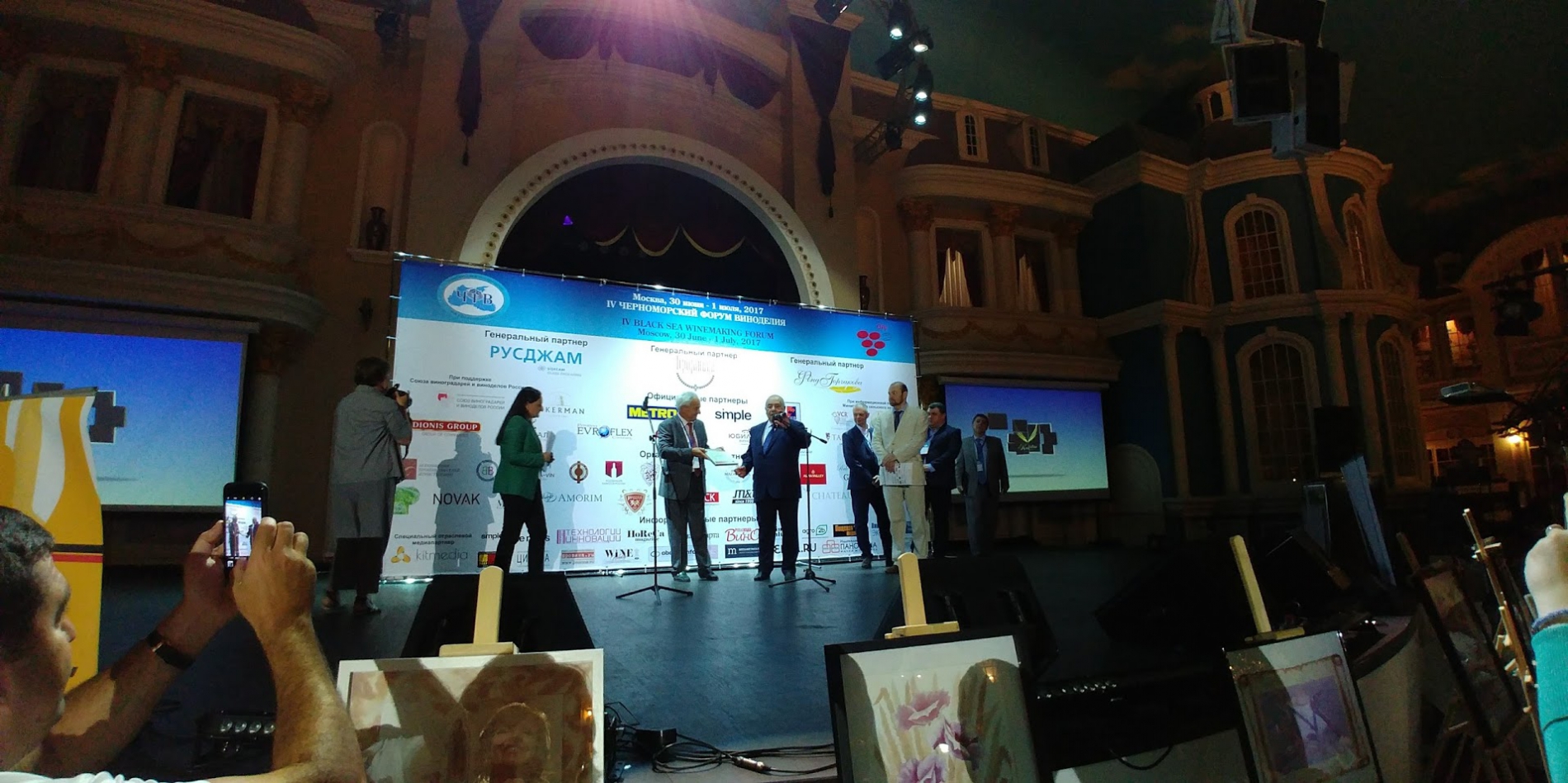
Engineer, oenologist, teacher, researcher and then professor, elected in 2015 to the Russian Academy of Sciences, Lev Oganesyants has devoted his career to the vitivinicultural sector. The author of more than 350 scientific publications and 15 or so works including one on the history of the vine and wine field in Russia, which received a Special Mention from the OIV, for many years he was the Russian point of contact and official representative within the Organisation.
The Director of the OIV expressed his heartfelt thanks to Professor Oganesyants for his continual and efficient actions to strengthen relations between the OIV and the Russian Federation.
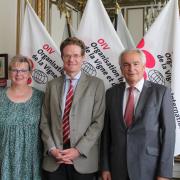
During this meeting, the President and Director General of the OIV gave a presentation of the Organisation and welcomed the quality of relations maintained with the German authorities, as well as the high level of involvement of German experts in the work of the OIV.
The Ambassador expressed his delight with this collaboration within a sector that not only plays an important economic role (Germany falls within the top 10 wine-producing countries and is the 4th biggest consuming country), yet also has a strong cultural and historic dimension.
